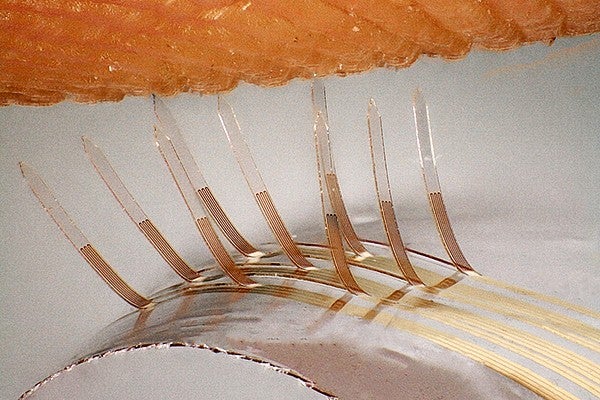

What is bioengineering?
Bioengineering is an interdisciplinary field that applies engineering principles and quantitative methods to advance knowledge at the molecular, cellular, tissue, organ, and system levels, and to develop new biologicals, materials, devices, and processes. Bioengineers invent new materials to repair musculoskeletal injuries, sense physiological markers (like blood sugar) in the body, regenerate tissue and build interfaces between computers and the nervous system.
Undergraduate Minor in Bioengineering
Students in the minor apply their natural sciences background towards bioengineering problems, research, and innovations. You will learn through a combination of experiential approaches including hands-on work in our bioengineering teaching labs. Students in the minor also have access to elective courses in innovative technologies like 3D printing, protein engineering, and biomaterials. Completing the minor is a great way to prepare for a career in the biotech industry or to pursue graduate training in bioengineering, medicine, or law.
The minor is also a great way to meet and network with Knight Campus faculty and students and launch conversations about undergraduate research in Knight Campus research groups.
For more details, course of study, sample schedules, and advising information, please click the button below.
Undergraduate bioengineering minor students have access to state of the art facilities and many opportunities to acquire cutting-edge skills. Get a peek into a wearable sensors class and see how undergraduate students at the Knight Campus repurpose newfound engineering skills into their own research.
Undergraduate Research in Bioengineering
Want to get involved? The first step is to figure out what research areas are most interesting to you. Explore faculty and research group websites, attend research seminars, talk to your colleagues who are doing research and read papers. Once you have a pretty good idea of the type of research that interests you, email faculty members conducting research in that area, explaining your background, why you are interested in their research and ask whether they are interested in recruiting undergraduate researchers to their lab. The Knight Campus also has a dedicated program for undergraduate research called the Knight Campus Undergraduate Scholars Program.
Getting involved in undergraduate research is a great way to immerse yourself in an applied field like bioengineering. There are exciting research opportunities with one of the Knight Campus research teams that will enrich your education and prepare for exciting careers at the interface of engineering and the life sciences. These research teams develop new approaches that use engineering strategies to advance human health in areas like regenerative medicine, human performance, biomaterials, sensors and neural engineering.
Undergraduate research in bioengineering will help you:
- Design and execute research plans to discover and invent
- Translate discoveries into processes, devices and solutions that advance human health
- Explore and refine your professional goals
- Develop critical thinking and professional skills to fuel your future studies and career
Got Questions? We Got Answers
Send us your questions about any of our undergraduate programs to bioengineering@uoregon.edu
and one of our advisors will be sure to contact you as soon as possible.
